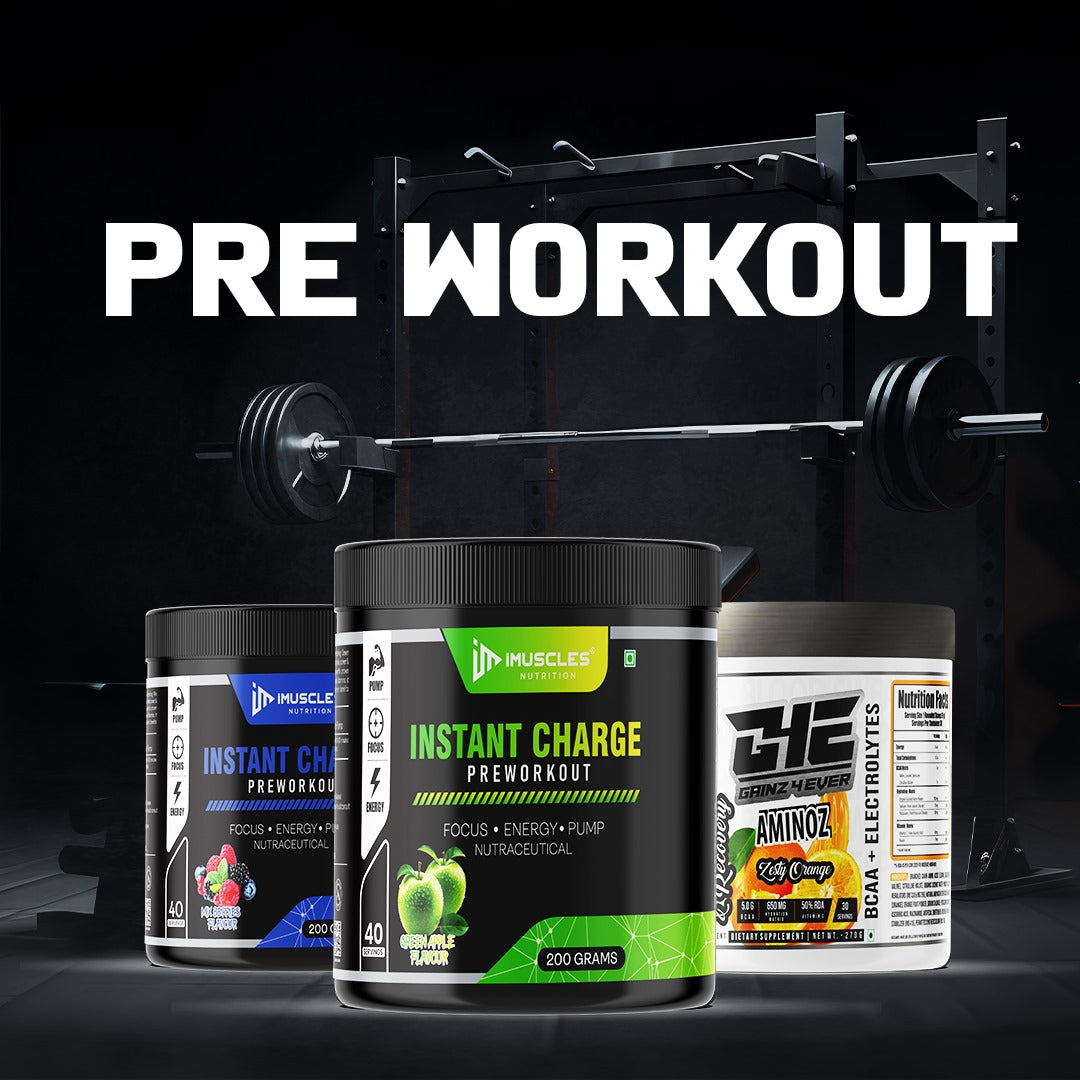
Protein Bars — Candy In Disguise DAMAGING YOUR GAINS?
iMuscles NutritionProtein Bars — Candy In Disguise DAMAGING YOUR GAINS?
In recent times, protein bars have taken a huge leap to the front among the fitness people, bodybuilders and also by someone who just wants to munch on something right away. We are told they're a quick protein hit for muscle growth, fat loss and energy. Well, to put it bluntly: Are protein bars just candy in disguise that are sabotaging your progress?
The Truth About Protein Bars
Protein bars can be pretty deceiving when it comes to nutrition. Some bars are truly made to assist in muscle building and recovery, while others are nothing but thinly disguised candy bars which contain sugars, unhealthy fats and artificial ingredients. Best-case scenario, what you believe feeding your body is in truth ruining your progress that you are making in the gym.
The Good vs. The Bad Protein Bars
First, here is a quick guide when it comes to good vs. bad protein bars:
Protein Content The main purpose of taking a protein bar is to supplement your daily protein needs. How much protein should be in a good protein barA good protein bar contains 15-25 grams of high-quality protein (whey isolate, casein, or other complete proteins that provide all the essential amino acids. So whilst many bars will contain a source of protein they may fall short in quality or the amount where they contribute to just a portion of the total daily protein required to support muscle repair.
Sneaky Sugars and Artificial Sweeteners — When it comes to protein bars, many taste great because they have sugar added (sometimes with upwards of 20 grams per serving). Eating too much sugar in general, and particularly in these ways, causes your insulin levels to shoot up which results in storing fat instead of building muscle. On top of that, artificial sweeteners (like sucralose) and sugar alcohols can literally give you the runs or make you bloated giving a crappier performance.
Low Protein / Too High Fat and Calorie content – most of those fat measures come from bad fats, typically hydrogenated oil or Trans Fats. It harms the heart and is also a source of increased lipid consumption. Because you will burn through these unhealthy fats rather quickly, any excessive intake over time can certainly throw a wrench in reaching your fitness goals. The bars should be searched for with a balanced amount of fat approaching into play — which means that you will not be looking at Triscuits on the dusting while also keeping your total fat bite in control.
The Right Amount of Fiber and Carbs to Balance out Your Protein The protein bar you choose should also add up to the appropriate portion of both carbohydrates and fiber contents, so your energy levels are not compromised nor led to high calorie intake. Most of the protein bars out there are high in carbs, which if eaten too often (apart from keeping watch on your caloric intake), can bring about unwanted body fat. Shoot for bars that have 5-10 grams of fiber which will aid digestion and keep you satiated longer.
Are They Wrecking Your Gains?
Eating the wrong type of protein bar can hamper your fitness journey in more ways than one.
Gotab Fat: Some bars are packed with so much sugar and fats that they rival regular candy bars in caloric value. Eating these regularly will pile the pounds on OVER your muscle building work.
Protein Bar only: If you have a protein bar that is low in protein or low quality protein, you may not be able to adequately replenish your muscles with amino acids for recovery and growth.
Nutritional Imbalance: Many protein bars are so focused on taste that they become nutritionally deficient. If you have too much sugar or bad fats then it could lead to Inflammation, insulin resistance and diminished performance in workouts.
Selecting The Perfect Protein Bar
Cut you off at the pass in terms of undermining your gains, because reading that nutrition label is so important. Here’s what to look for:
Protein: Look for 15 grams at least of quality protein bars.
Sugar and Sweeteners: Aim for less than 5 grams of sugar in bars that contain it, and watch out for any bars with artificial sweeteners.
Healthy Fat: Look for bars with fats in the form of nuts or seeds which are generally healthy and natural, while avoiding processed sources like trans fats or hydrogenated oils.
Fiber — Make sure the bar has about 5 to 10 grams to help with digestion.
Final Verdict: Some GOOD Protein Bars
While protein bars in the grand scheme of things arent awful for you, if you pick the wrong one, it can absolutely derail your fitness journey. If you use bars that are high in sugar, bad fats and low protein, you might as well be eating a candy bar. But in careful consideration, protein bars can be a wonderful and useful addition to your muscle-building toolkit. Whole foods are always the best protein choice, but if you must use a bar, ensure it is feeding your muscles and not starving them.

